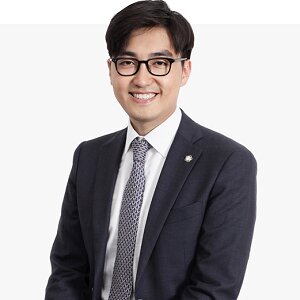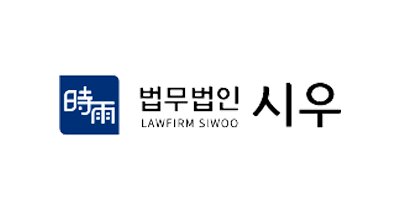Best Lawsuits & Disputes Lawyers in Yeonje-gu
Share your needs with us, get contacted by law firms.
Free. Takes 2 min.
List of the best lawyers in Yeonje-gu, South Korea
About Lawsuits & Disputes Law in Yeonje-gu, South Korea
Lawsuits and disputes law in Yeonje-gu, a district of Busan, South Korea, governs how individuals, businesses, and organizations resolve legal disagreements. This area of law covers a broad range of civil, commercial, family, and property conflicts that may require formal court proceedings or alternative dispute resolution methods. South Korea’s legal system is rooted in civil law, with local courts in Yeonje-gu following national statutes, supplemented by municipal regulations and customs relevant to the district. Whether you are dealing with unpaid debts, contract issues, family matters, or neighbor disagreements, understanding this legal landscape is essential before taking any action.
Why You May Need a Lawyer
There are several situations in Yeonje-gu where seeking help from a lawyer is advisable when facing lawsuits and disputes. These include:
- Contract disagreements, such as breaches of sales or service agreements - Financial disputes over loans, unpaid debts, or damages - Landlord and tenant issues, including eviction or lease disagreements - Family law matters, such as divorce, child custody, or inheritance - Employment disputes, covering wrongful termination or discrimination - Consumer complaints against businesses regarding defective products or services - Personal injury cases arising from accidents or negligence - Boundary or property disputes between neighbors
A lawyer can help you understand your rights, suggest effective resolution options, draft legal documents, represent you in mediation or negotiation, and advocate for you in court.
Local Laws Overview
In Yeonje-gu, the legal framework for lawsuits and disputes is based on South Korea’s Civil Code, Civil Procedure Act, and relevant statutes. District courts, including the Busan District Court's Yeonje branch, handle the majority of civil lawsuits and disputes. Key aspects include:
- Small claim disputes are often resolved quickly, with simple procedures for amounts under a designated threshold - The law encourages alternative dispute resolution such as mediation, especially for minor civil or family clashes - Legal documents and proceedings are conducted in Korean, and official interpreters are required if you are not fluent - Strict timelines apply for filing lawsuits called statutes of limitations, which vary depending on the type of claim - Court fees must be paid when initiating a lawsuit, though some cases may qualify for reductions - Confidentiality is respected in sensitive family or business disputes - Enforcement of court decisions can involve property seizure or compulsory orders if a party refuses to comply
Being aware of these local procedures helps you better prepare for any legal process in Yeonje-gu.
Frequently Asked Questions
What should I do first if a legal dispute arises in Yeonje-gu?
Begin by gathering all relevant documents, evidence, and records. Consult a local attorney to evaluate your situation and get advice on your best legal options.
Can I represent myself in a lawsuit in Yeonje-gu?
Yes, you have the right to represent yourself in court. However, local legal procedures can be complex, and it is often in your best interest to have a lawyer, especially for significant or complicated disputes.
What is the role of mediation in settling disputes?
Mediation is a voluntary process where a neutral third party helps resolve disputes outside the courtroom. In Yeonje-gu, courts may recommend mediation, particularly for small or family cases.
How long does it take to resolve a lawsuit in Yeonje-gu?
The duration depends on the complexity of the case. Simple small claims or disputes may be resolved in a few months, while more complex cases can take a year or longer.
What if the other party refuses to follow the court order?
If the losing party does not comply with a court judgment, you can request enforcement measures such as wage garnishment or property seizure through the local court.
How are legal fees structured in South Korea?
Lawyers may charge fixed fees or hourly rates, with additional fees for court filings and translations if necessary. Some cases, such as personal injury, may involve contingency fees where payment is due only if you win.
Are court hearings conducted in English or Korean?
Proceedings in Yeonje-gu are conducted in Korean. If you are not proficient, you must arrange for a certified interpreter, sometimes at your own expense.
What should I bring to my first meeting with a lawyer?
Bring identification, all documents related to your dispute, any communication with the other party, and notes detailing the timeline of events.
Is it possible to appeal a court decision?
Yes. If you are dissatisfied with the outcome, you may appeal to a higher court within the deadline specified by law, typically two weeks after the court judgment.
Where can I find free or affordable legal advice in Yeonje-gu?
Local government offices, legal aid organizations, and bar associations often provide free consultations or reduced-cost legal services for those who qualify.
Additional Resources
For those seeking help or information regarding lawsuits and disputes in Yeonje-gu, the following resources can be useful:
- Busan District Court, Yeonje Branch, which handles local civil cases - Korea Legal Aid Corporation, which offers support for low-income individuals - Korean Bar Association, with directories of licensed attorneys - Busan Bar Association, providing free legal counseling events - Yeonje-gu District Office, where you can access public legal education sessions and dispute resolution information - Local police stations for criminal or urgent matters - Local mediation centers for alternative dispute resolution services
Next Steps
If you need assistance with a lawsuit or dispute in Yeonje-gu, consider these steps:
1. Assess your situation and collect related evidence. 2. Seek an initial legal consultation through a trusted attorney or legal aid service. 3. Understand your rights and obligations under local and national law. 4. Explore dispute resolution options, such as mediation, before initiating formal court proceedings. 5. File your lawsuit within the relevant statute of limitations if settlement is not possible. 6. Prepare for court by gathering necessary documents and evidence. 7. Attend all required court or mediation sessions, and comply with local procedural rules. 8. If necessary, seek enforcement or appeal with your lawyer’s assistance.
Taking these steps and consulting with a qualified lawyer ensures that your rights are protected and maximizes the chances of a favorable outcome in your lawsuit or dispute in Yeonje-gu.
Lawzana helps you find the best lawyers and law firms in Yeonje-gu through a curated and pre-screened list of qualified legal professionals. Our platform offers rankings and detailed profiles of attorneys and law firms, allowing you to compare based on practice areas, including Lawsuits & Disputes, experience, and client feedback.
Each profile includes a description of the firm's areas of practice, client reviews, team members and partners, year of establishment, spoken languages, office locations, contact information, social media presence, and any published articles or resources. Most firms on our platform speak English and are experienced in both local and international legal matters.
Get a quote from top-rated law firms in Yeonje-gu, South Korea — quickly, securely, and without unnecessary hassle.
Disclaimer:
The information provided on this page is for general informational purposes only and does not constitute legal advice. While we strive to ensure the accuracy and relevance of the content, legal information may change over time, and interpretations of the law can vary. You should always consult with a qualified legal professional for advice specific to your situation.
We disclaim all liability for actions taken or not taken based on the content of this page. If you believe any information is incorrect or outdated, please contact us, and we will review and update it where appropriate.
Browse lawsuits & disputes law firms by service in Yeonje-gu, South Korea
Yeonje-gu, South Korea Attorneys in related practice areas.









